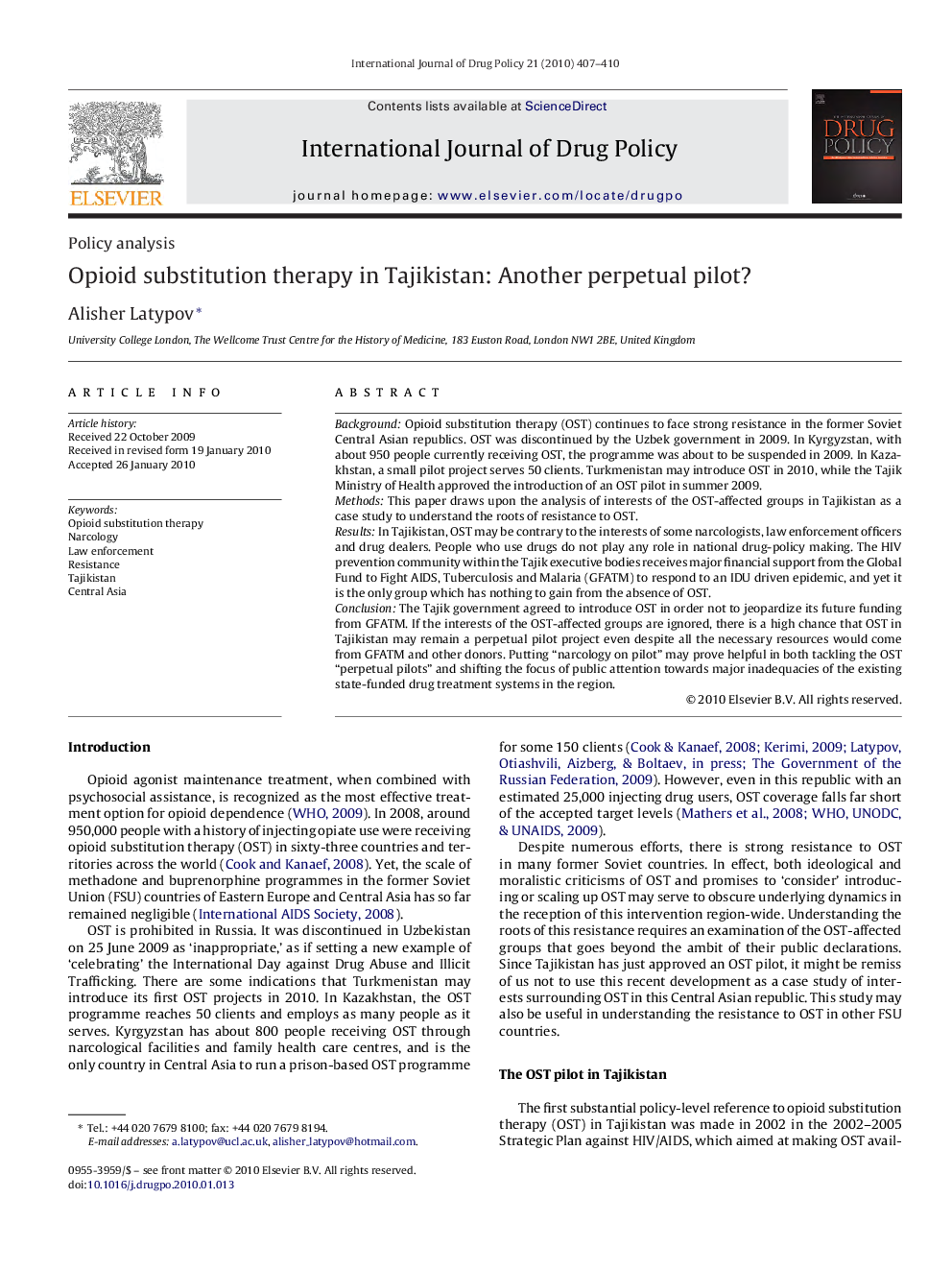| Article ID | Journal | Published Year | Pages | File Type |
|---|---|---|---|---|
| 1075361 | International Journal of Drug Policy | 2010 | 4 Pages |
BackgroundOpioid substitution therapy (OST) continues to face strong resistance in the former Soviet Central Asian republics. OST was discontinued by the Uzbek government in 2009. In Kyrgyzstan, with about 950 people currently receiving OST, the programme was about to be suspended in 2009. In Kazakhstan, a small pilot project serves 50 clients. Turkmenistan may introduce OST in 2010, while the Tajik Ministry of Health approved the introduction of an OST pilot in summer 2009.MethodsThis paper draws upon the analysis of interests of the OST-affected groups in Tajikistan as a case study to understand the roots of resistance to OST.ResultsIn Tajikistan, OST may be contrary to the interests of some narcologists, law enforcement officers and drug dealers. People who use drugs do not play any role in national drug-policy making. The HIV prevention community within the Tajik executive bodies receives major financial support from the Global Fund to Fight AIDS, Tuberculosis and Malaria (GFATM) to respond to an IDU driven epidemic, and yet it is the only group which has nothing to gain from the absence of OST.ConclusionThe Tajik government agreed to introduce OST in order not to jeopardize its future funding from GFATM. If the interests of the OST-affected groups are ignored, there is a high chance that OST in Tajikistan may remain a perpetual pilot project even despite all the necessary resources would come from GFATM and other donors. Putting “narcology on pilot” may prove helpful in both tackling the OST “perpetual pilots” and shifting the focus of public attention towards major inadequacies of the existing state-funded drug treatment systems in the region.
